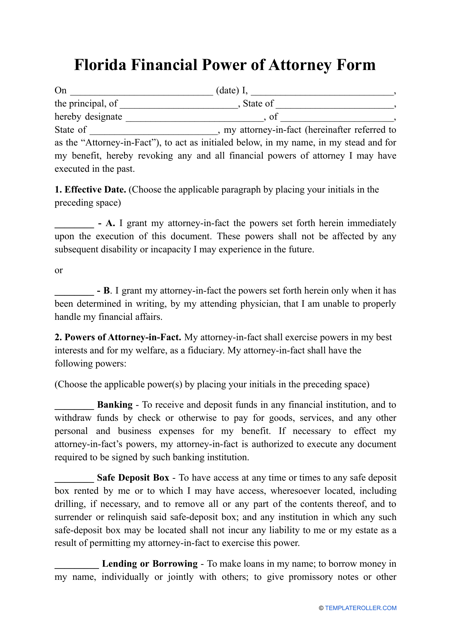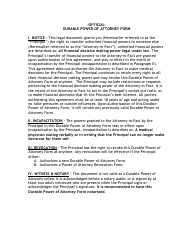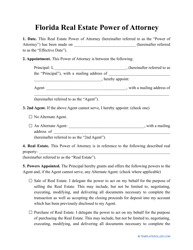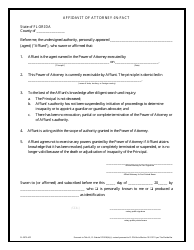Financial Power of Attorney Form - Florida
The Financial Power of Attorney Form in Florida allows someone (the agent) to make financial decisions on behalf of another person (the principal) if they become incapacitated or are unable to manage their own finances.
The Financial Power of Attorney form in Florida is typically filed by the individual granting the power, known as the principal.
FAQ
Q: What is a financial power of attorney?
A: A financial power of attorney is a legal document that grants someone (known as the agent or attorney-in-fact) the authority to make financial decisions and manage financial matters on behalf of another person (known as the principal).
Q: Why would I need a financial power of attorney?
A: A financial power of attorney can be useful if you become incapacitated or unable to manage your own financial affairs. It allows someone you trust to step in and handle your financial matters on your behalf.
Q: What powers can be granted in a financial power of attorney?
A: The powers granted in a financial power of attorney can vary depending on the specific document, but they typically include paying bills, managing bank accounts, filing taxes, buying or selling property, and making investment decisions.
Q: Can I revoke a financial power of attorney?
A: Yes, you can revoke a financial power of attorney at any time, as long as you are still mentally competent to do so. You would need to notify your agent in writing and possibly consult with an attorney to ensure the revocation is properly executed.
Q: Do I need an attorney to create a financial power of attorney?
A: While it is not required to have an attorney create a financial power of attorney, it is highly recommended to consult with an attorney to ensure the document meets all legal requirements and addresses your specific needs.
Q: Is a financial power of attorney valid if I move to another state?
A: A financial power of attorney created in Florida should generally be recognized and valid in other states as long as it meets the legal requirements of both Florida and the other state. However, it may be a good idea to consult with an attorney in the new state to ensure compliance with their specific laws and requirements.






























